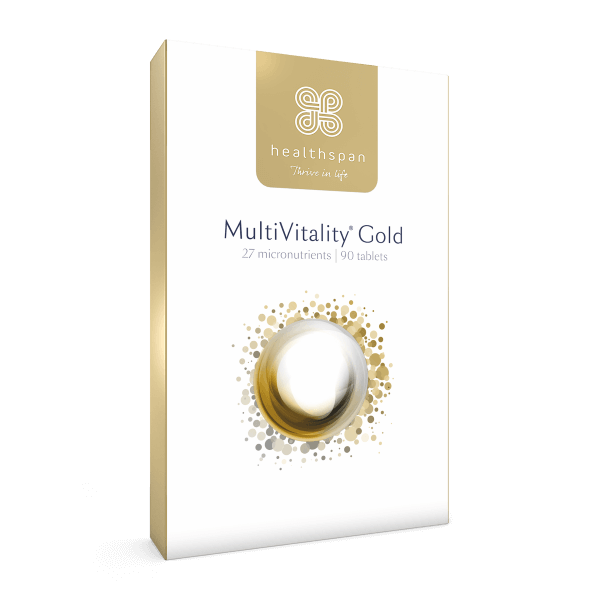Although there are those of us who claim they work 'better under pressure', leaving something important until the last minute, such as paying a bill or meeting a work deadline, rarely feels good. Putting ourselves under unnecessary stress can not only affect our mental health, but also our physical health.
In some instances stress can be beneficial to your health and safety. As a natural physical and mental reaction to both good and bad life experiences, your body responds to stress by releasing hormones and increasing your heart and breathing rates.
As a result, your brain is supplied with more oxygen, giving you an edge in responding to a problem. In the short term, stress helps you to react quickly and deal with challenging situations, but in the long term can begin to negatively benefit both your body and your mind
When stress inhibits your goals
Long-term stress can cause high levels of circulating cortisol and adrenaline. Both hormones are produced by our adrenal glands (located adjacent to our kidneys), and can decrease white blood cell production, which can lead to a lowered immune system.
When stress is chronically high and the adrenal glands continue to pump cortisol and adrenaline, our 'non-critical' functions are inhibited (digestion, liver metabolism and detoxification, cellular repair, immune function, and reproduction).
If your goal is to get stronger, faster, gain muscle, lose body fat, or simply become fitter, stress can potentially become your number one inhibitor.
Chronically elevated cortisol levels increase blood sugar levels, which then elevate insulin levels. This, among other things, will stop you from burning fat no matter what exercise or diet program you follow.
It's not just the hormones that suffer. Mental state also deteriorates, which leaves the body craving a relief. For some this can take the form of smoking or drinking alcohol, for others it might mean reaching for sugary foods.
Heart rate also increases during stressful situations, which sends a signal to the brain's prefrontal cortex (the part that handles thought processing and decision-making). The signal tells this part of the brain to shut down temporarily, allowing the midbrain to take over. When we're in this state, instinct and training take over from rational thought and reasoning.
What does stress look like?
If we took a look inside the body of someone suffering with stress, we might see that their markers of inflammation are elevated. In addition, connective tissues may be struggling to heal, healthy neurotransmitters and anabolic hormones may seem reduced, whilst catabolic hormones such as cortisol are increased.
On the outside, there are also noticeable signs of stress. Hair loss, dry skin, and breakouts are just a few changes you might see.
What's more, you may find that you are carrying more fat in your trouble areas. The fat cells in the abdominal region are hypersensitive to cortisol, and as a result too much stress can cause excess belly fat, increasing the risk of cardiovascular disease and metabolic disorders.
How to keep stress at bay
There are many chronic stressors in today's society, including mental and emotional stress, food sensitivities, blood sugar imbalances, infections (i.e. parasitic, bacterial), and excessive exercise, to name a few – basically anything that puts stress on the body, whether that be mentally or physically.
One of the best-known ways to cope with stress? Exercise. However, this general prescription is not as straightforward as it may seem.
There are two brain functions that categorise our activity. Sympathetic activity (often called 'fight or flight' activity) and parasympathetic activity (or the 'rest and digest' activity).
Generally speaking, most of us tend to be much too 'sympathetic'. It might be our jobs, our homes, our bills, our relationships, but all too often we allow ourselves to be thrown into the fight or flight state.
When turning to exercise to relieve stress, high-intensity workouts or maybe a long run will usually spring to mind. But these types of sessions lead to more cortisol being released into the bloodstream, forcing the body to go into a further state of stress.
Stress is, specifically, a sympathetic nervous system response to both mental and physical challenges in life. Therefore, when 'stressed', we're really experiencing a sympathetic overload, which manifests in a high heart rate, an abundant cortisol release by the body, and high concentrations of epinephrine (adrenaline) and norepinephrine (noradrenaline) into the blood.
As a result of this, when people have lots of additional stress in their lives, doing a large amount of additional high-intensity exercise should never be the prescription.
Treating stress is about balance
So, in essence, hitting the gym hard isn't a viable solution if you're really looking to reduce your stress levels. Whilst you should maintain your normal routine, balancing your plan out with parasympathetic activity is paramount.
Parasympathetic activity includes activities such as low-intensity cardio, meditative yoga, or just quiet contemplation. The ultimate stress-busting workout for the average person would be two to three days a week of strength and/or interval exercise, and another two to three days a week of low-intensity activity like taking a walk or riding a bike.

Low-intensity cardio exercise, such as cycling or brisk walking, is a great stress buster.
Using nutrition to combat stress
Although stress can cause the body to gain fat, it's not always the case, so do not worry about your weight when toning down your exercise routine.
Stress, weight, and exercise are interlinked, but it is what you are putting into your body that will make more of a difference to any weight or fat you may gain.
When stressed, night-time cortisol levels are high, which makes it very difficult to get to sleep. Of course, when awake there are more opportunities to eat. On a busy day, when it's easy to skip meals, this can lead to bingeing or relying on more processed foods or quick fix sugary carbohydrates to function.
It's this combination of no sleep, hunger, carb cravings, and binging, that can lead to weight gain. Reaching for the biscuit barrel or a glass of wine, although giving initial satisfaction, loads the body with sugar and fat, putting the body under even more stress, and risking illness.
Once ingested, fat- and sugar-filled foods seem to have a feedback effect that inhibits activity in the parts of the brain that produce and process stress and related emotions, but they offer little benefit to the body itself.
The hard-working gut allows nutrients and water to enter the body while preventing the entry of toxins and antigens. It's a selective barrier between 'us' and the outside world, but a distressed gut can't act in our defence.
Instead, it allows dangerous compounds to enter the body. That's where nutrition comes in. The right diet strengthens the gut in its guardian role: improving overall health and well-being.
The ideal diet for anyone, but especially for people under stress, consists of nutrient-dense whole foods. Under stress, you may crave a sugary doughnut for breakfast, but the body will quickly digest the refined carbohydrates and fat.
A whole-food diet of fresh fruits and vegetables, lean protein, legumes, nuts and seeds, is rich with all the nutrients needed to help avoid weight gain, and ensure your body's optimum health.
Also, it's not just what you eat that can affect stress, but how. When stressed, skipping a meal increases the chance of overindulging later. Choose regular meals and snacks throughout the day to regulate cortisol levels and blood sugar: reducing the temptation to reach for a quick sugar fix or midnight feasting.
MultiVitality Gold
One-a-day health support
- The whole spectrum of vitamins and minerals in one tablet
- Suitable for vegetarians and vegans
- Protect yourself from nutritional deficiencies
Conquer stress in the body and mind
Stress management techniques are endless, and effectiveness can vary per individual. Meditation, deep breathing, yoga, guided imagery, and behavioural distraction are effective, but can be difficult to undertake and master.
Focusing on just one minute of guided meditation a day is a good start, and can be built upon to create a completely stress-free part of your routine.
On top of active stress management, you should also consider how 'stressful' your lifestyle is. Taking a step back, examining every area of your life, and determining what areas need work can go a long way to achieving optimal health.
As well as considering your diet and exercise regime, also think about the amount of sleep you get on average, your work-life balance, and your relationships. Address weak areas individually, focusing hard to improve them for a 30-day period.
With all this in mind, you must remember the importance of nutrition in your overall wellbeing and stress levels. Maintaining good nutrition is key to ensuring your body and mind are in the best possible condition to combat stress – regardless of its source or intensity.







